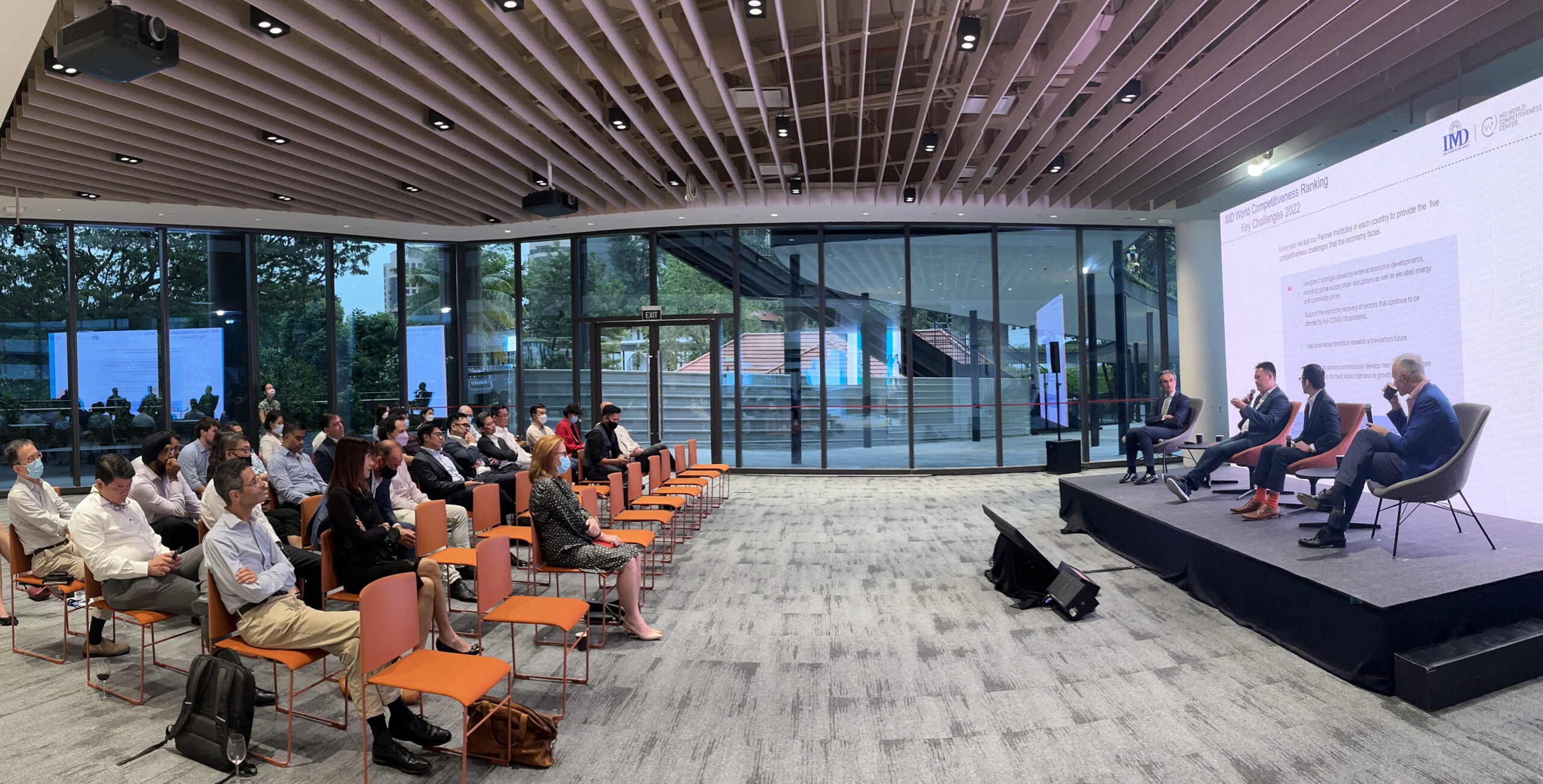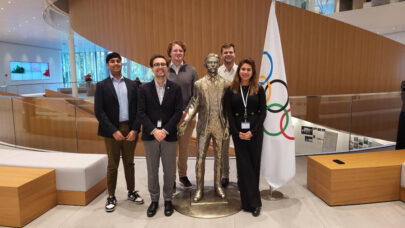
‘Singapore is economically competitive. To maintain its position, it needs to invest more in developing transformational leaders’
Singapore’s senior executives are well-positioned to adapt to today’s changing competitiveness climate which requires much more than a good education system to feed firms’ talent pipelines, says expert panel.
“Competitive countries improve the competitiveness of companies. But, at the same time, companies that become more competitive increase the competitiveness of the countries in which they operate,” said IMD Professor of Finance and Director of the IMD World Competitiveness Center, Arturo Bris, at an event for alumni and senior executives at the new IMD SEA campus in Singapore.
“It’s very clear that many companies in Singapore are transforming to stay competitive, and thus allowing the country to stay on top. But these transformations will succeed only if Singapore has enough transformational leaders, and this will require more than a world-class education system to feed firms’ talent pipelines,” continued Misiek Piskorski, Dean of IMD South East Asia and Oceania.
Singapore ranked ninth in total public expenditure on education per student in the 2021 IMD World Talent Ranking, yet it fell 17 positions to 20th in availability of skilled labor in just one year. It also tumbled six positions in the availability of competent senior managers category during the same period.
“A country’s competitiveness might be at risk when its companies rely predominantly on the government to provide transformational leaders through the education system,” explained Bris. “The world is changing fast, and so are the leadership skills required to succeed, so you can’t rely on the education system. Instead, companies must take it upon themselves to develop such transformational leaders. Singapore is an excellent example of a country in a great place to act now.”
Developing technical skills
In response to Professor Bris’ call for more executive development, many panelists illustrated examples of technical skill development in Singapore. Soo Wei-Chieh, Executive Director, Global Division 3 of the Singapore Business Federation (SBF), the local partner institute of the WCC in Singapore and supporter of the event, said:
“We help Singapore’s companies prepare for the future by working with fellow trade associations and chambers to accelerate transformation and digitalization. Appointed by the Singapore Government as Jobs Development Partner, we engage Industry Transformation Advisors to support companies pursue enterprise and manpower transformation, while creating and redesigning job opportunities.”
Similarly, at PayPal Singapore, two major collaborative programs exist aimed at bringing leaders – current and potential – up to speed; those with the NTU (Nanyang Technological University) and IMDA take an integrated approach to companies’ abilities to advance cryptography research and acquire ICT skills, respectively, explained Aaron Wong, CEO of PayPal Pte Ltd Singapore. He said, “With PayPal NTU, we train lots of students and take some of them on ourselves. It’s transformational. Cybersecurity attacks are frequent and intense.”
The recent COVID-19 pandemic and its aftermath made matters worse. Wong explained, “We have seen a movement of talent back home. This has made it even more important to develop talent quickly.”
The situation stands in marked contrast to what’s been happening in Switzerland, claimed Fabrice Filliez, outgoing Ambassador of Switzerland to Singapore. “Many companies in Switzerland have, through leadership and transformation, managed to retain talent,” he said. “A mix of strong leadership, vision and having their feet on the ground is probably partly why.”
Developing leadership skills
“To succeed with transformations you need much more than technical skills,” said Professor Misiek Piskorski, who is also Academic Director of IMD Voyager, which helps leaders identify their strengths and growth needs and translate them into practical plans. “What you really need is a set of leaders who know how to influence diverse stakeholders through formal and informal means,” he explained. “This means leaders who manage their teams by galvanizing them, and also sometimes by stepping back to give them power. You also need leaders who know how to lead themselves.
“This is not easy, as you are being asked to excel across different ways of leading strategy, execution, stakeholders, people and self. But it can be done if you are willing to ask others for help, and it can be achieved through educational courses, or by creating your own personal board of directors that can advise you, as a leader, on how best to grow.”


